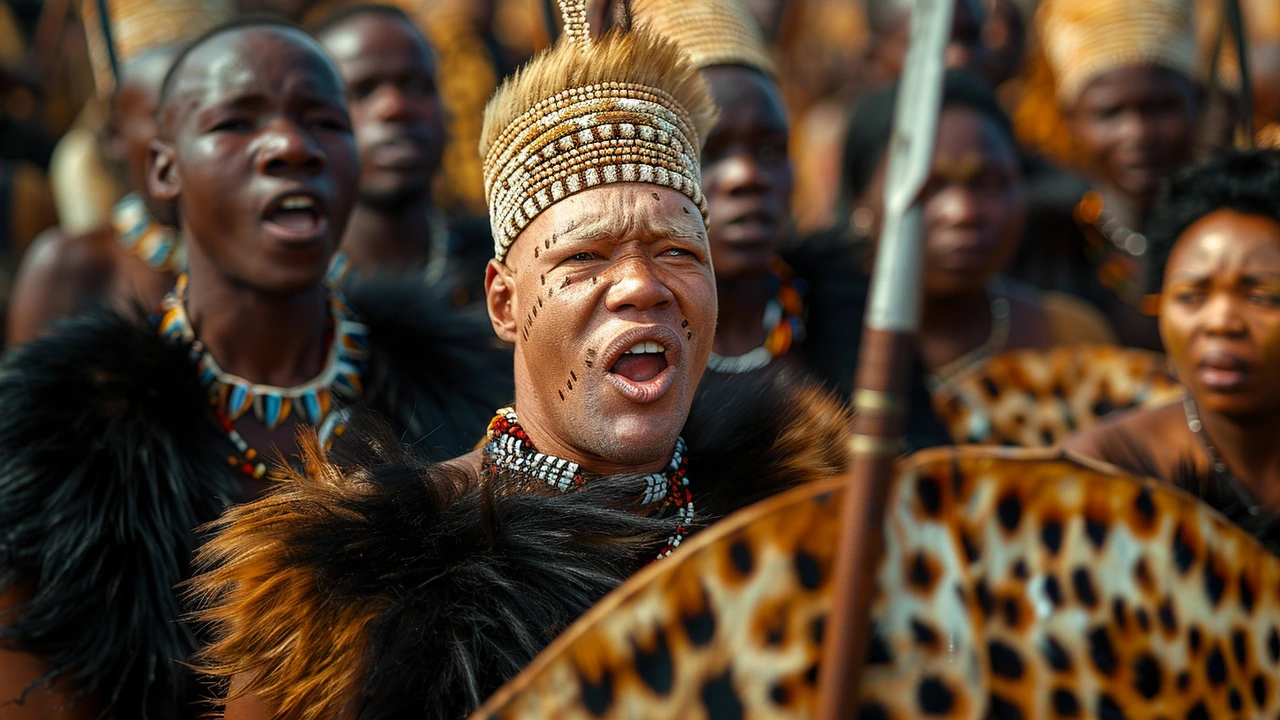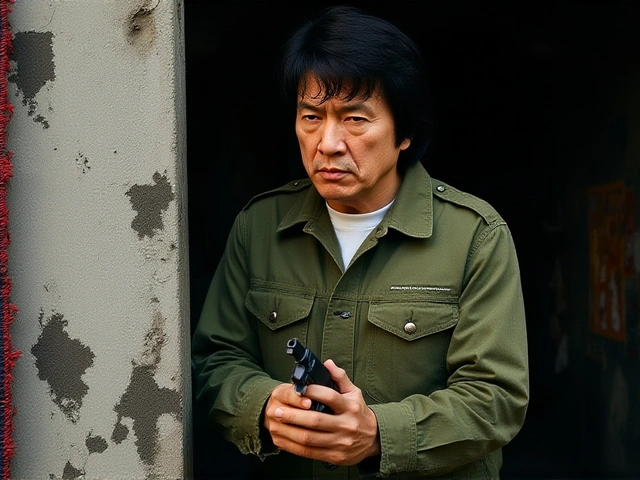Background of the Ingonyama Trust Case
In the heart of KwaZulu-Natal, South Africa, legal tensions have risen as the AmaZulu Royal family confronts King Misuzulu regarding the management of the Ingonyama Trust. This Trust, a significant entity as it controls nearly three million hectares of land, stands at the center of the dispute. With King Misuzulu as the sole trustee, the stakes are high. The Pietermaritzburg High Court recently heard an urgent application from members of the Royal family, led by Prince Mbonisi Zulu. The family seeks to interdict King Misuzulu from exercising any powers over the Trust, underscoring the importance of the case for all parties involved.
Details of the Court Hearing
The application brought before Judge Peter Olsen is fueled by profound concerns within the Royal family. Prince Mbonisi Zulu, the King’s uncle, along with other family members, is taking a firm stance against the current administration of the Ingonyama Trust. They argue that the Trust should not fund King Misuzulu’s legal fees, as they believe such actions would be unlawful. The urgency of the application reflects the gravity of the situation and the impacts it could have on the region and its governance.
Arguments Presented in Court
During the court proceedings, the legal representatives of King Misuzulu were quick to counter the claims. They argued that there is no substantial evidence of any unlawful activities within the Trust. They assert that the Trust’s operations have remained transparent and within legal parameters. This defense is crucial as it aims to maintain the King’s position and authority over the Trust. The opposition from the Royal family adds layers of complexity to the unfolding legal drama, as each side believes they are acting in the best interest of the AmaZulu people.
The Significance of the Ingonyama Trust
For the uninitiated, understanding the Ingonyama Trust’s significance requires delving into its history and role. Established in 1994, the Trust was designed to administer tribal land traditionally under the custody of Zulu kings. With nearly three million hectares of land under its jurisdiction, the Trust plays a critical role in land tenure and management in KwaZulu-Natal. The King’s role as sole trustee amplifies the influence he wields, making the current legal dispute not just about control, but also about the broader implications for land governance and the rights of the AmaZulu people.
Implications for the Zulu Nation
As the case awaits Judge Peter Olsen’s reserved judgment, its implications for the Zulu nation cannot be understated. The decision will influence not only the immediate management of the Trust but also set a precedent for future governance practices within the Royal family. It’s a pivotal moment that could redefine traditional leadership roles and the administration of communal resources. The community’s response to the court’s judgment will be a testament to the deep-rooted respect for authority and the evolving dynamics of power within the AmaZulu nation.
President Ramaphosa’s Involvement
Compounding the situation is a separate yet related legal development involving President Cyril Ramaphosa. The President is currently appealing a Pretoria High Court order that ruled his decision to recognize King Misuzulu as invalid and unlawful. This appeal adds another layer of complexity to the already intricate legal scenario, intertwining national leadership with traditional authority. President Ramaphosa’s actions and the outcome of this appeal will have far-reaching consequences for the legitimacy of King Misuzulu’s reign and the stability of the AmaZulu Royal House.
Future Perspectives
As the community and legal observers await the judgment, reflections on the future of the Ingonyama Trust and its administration abound. The court’s decision could usher in reforms that ensure greater accountability and transparency in managing communal lands. This could pave the way for more inclusive governance that acknowledges the needs and rights of the AmaZulu people. The current legal battle highlights the importance of balancing traditional leadership with modern legal frameworks, ensuring that the administration of communal resources benefits all stakeholders involved.
Conclusion
The ongoing legal contest over the Ingonyama Trust reflects deeper issues within the AmaZulu Royal House and the complexities of managing traditional land in a contemporary legal context. As Judge Peter Olsen prepares to render his judgment, the entire nation watches closely, recognizing the high stakes involved. The outcome will resonate beyond the confines of the courtroom, influencing the future governance of the AmaZulu people and setting important precedents for the interplay between traditional authority and modern legal norms.






abi rama
May 17, 2024 AT 20:21Hope the judgment brings clarity for everyone.
Megan Riley
May 29, 2024 AT 10:08Oh wow, this is such a big deal!! I really think the family deserves peace, so fingers crossed for a fair outcome. Keep the hope alive, okay?
Lester Focke
June 9, 2024 AT 23:55The Ingonyama Trust, as an institution founded in the transformative period of post‑apartheid South Africa, epitomises a complex intertwining of customary authority and statutory governance. Its vast landholdings, approaching three million hectares, confer upon the trustee a quasi‑sovereign capacity that transcends ordinary fiduciary responsibilities. The present litigation, therefore, is not merely a familial dispute but a substantive constitutional inquiry into the limits of monarchical prerogative within a democratic framework. While the King asserts that the Trust’s administration remains within the bounds of legality, the objections raised by Prince Mbonisi and his cohort invoke the principle of accountability that is enshrined in the rule of law. Moreover, the contention that the Trust’s resources should not underwrite personal legal expenses underscores a broader concern regarding the separation of public assets from private interests. In adjudicating this matter, the Court must balance respect for cultural heritage with the imperatives of modern statutory oversight. Precedent from previous judgments concerning communal land trusts suggests that the judiciary is prepared to impose remedial measures when governance structures become opaque. Nevertheless, any intervention must be calibrated to avoid destabilising the delicate equilibrium that sustains the socio‑political fabric of KwaZulu‑Natal. The involvement of President Ramaphosa adds an additional layer of constitutional significance, as executive endorsement of traditional authority bears on the legitimacy of state‑customary relations. Should the judgment affirm the current trusteeship, it may inadvertently entrench a concentration of power that could be detrimental to participatory land management. Conversely, a ruling that curtails the King’s unilateral control might set a transformative precedent for the democratization of traditional institutions. Ultimately, the resolution of this case will reverberate beyond the immediate parties, informing future discourse on the reconciliation of indigenous governance with the imperatives of contemporary jurisprudence. It is thus incumbent upon the Court to render a decision that is both legally sound and socially resonant, thereby fostering a sustainable model for the stewardship of communal lands.
Naveen Kumar Lokanatha
June 21, 2024 AT 13:41Indeed, the legal nuances here are profound. While maintaining formal respect, we must also consider the lived realities of local communities who depend on the Trust's lands. A balanced approach could bridge tradition and modern governance.
Alastair Moreton
July 3, 2024 AT 03:28Another day, another royal drama – guess the crown can't stay shiny forever.
Surya Shrestha
July 14, 2024 AT 17:15One must, quite frankly, appreciate the intricacies of this case; it is not merely a matter of personal ambition, but a reflection of systemic governance structures, which require rigorous scrutiny, lest we descend into administrative chaos.
Rahul kumar
July 26, 2024 AT 07:01Yo, this is a massive deal for the Zulu people and the land stuff. The court's gonna set a big precedent, so everybody should stay tuned. It could change how the trust works for the better, definitely.